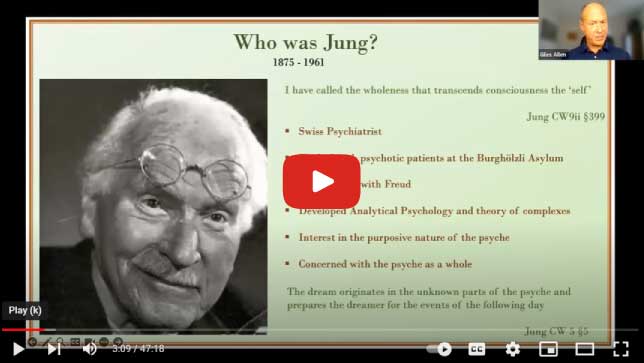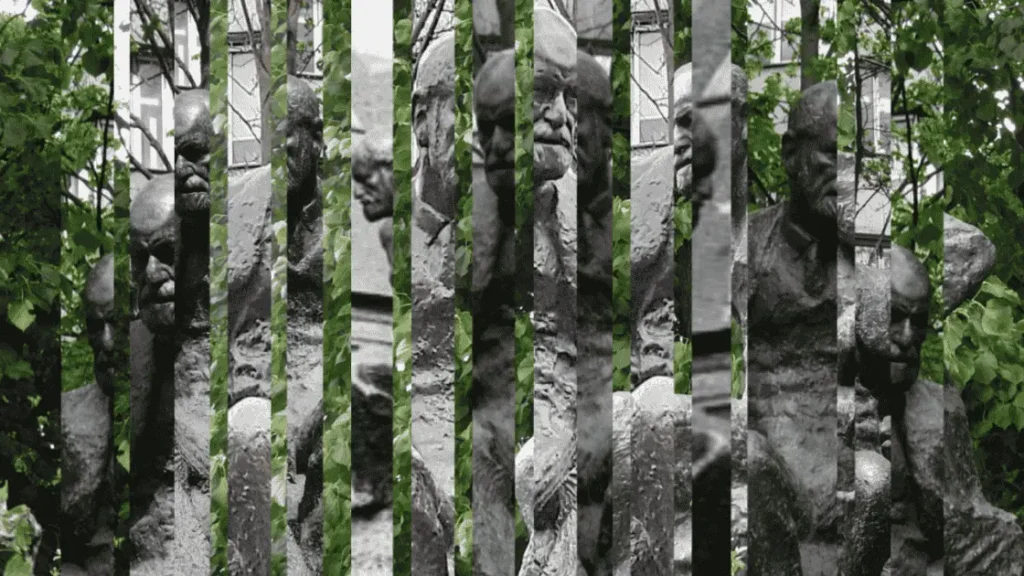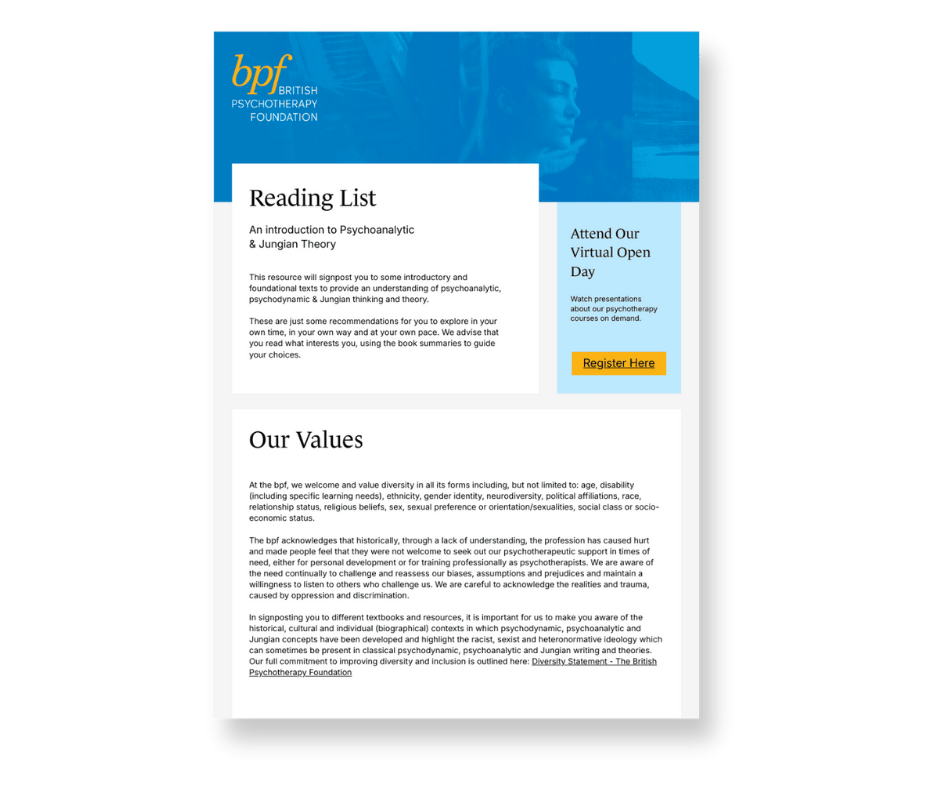
Jungian Psychotherapy Training
Winner of Diversity in Training Award 2023 (BPC)
Training Location: London. In-person study days with some online seminars. Part-time course.
The BJAA (British Jungian Analytic Association) is now offering a new training which will lead to qualification in Jungian Psychotherapy practising at once weekly frequency. Qualification in Jungian Psychotherapy leads to membership of the British Psychotherapy Foundation/BJAA, and of the International Association for Analytical Psychology (IAAP). This training is accredited by the British Psychoanalytic Council (BPC).
The BJAA trainings offer a Jungian developmental model encompassing a rich and diverse range of thinking that includes the study of Jung and post-Jungian ideas and the integration of these with psychoanalytic theories and ideas from other disciplines. The approach encourages questioning and critical evaluation of theory from historical, philosophical, social and political perspectives. The strong clinical emphasis is backed up by the requirement for an infant observation. With this foundation, Jungian psychotherapists are well equipped to develop a private practice or to apply the model to work in the NHS, higher education and the third sector.
Application deadline is April 21st annually.
Course starts in September annually.
- Course structure
- Content
- During training
- Qualification and Membership
- Entry requirements
- Course fees
- Resources
- Access information
- Training Pathways
- How to apply
Theory – The training in Jungian analysis, based on the work of Jung, and the post-Jungians and its integration with psychoanalytic ideas, provides a rich and challenging theoretical and clinical programme in which to develop the skills necessary to become a Jungian analyst.
Personal therapy – In order to be able to work in depth with the emotional life of individuals seeking therapy, it is essential that trainees undergo their own therapy. Engaging with the unconscious enables trainees to develop the capacity to better understand and reflect on their own states of mind, their shadow aspects, the tension of opposites within and to deepen their own personal development. The experience of one’s own therapy lies at the heart of all BJAA trainings. It necessarily requires a commitment of time and a readiness for deep thoughtfulness.
Seeing training patients – Training in Jungian psychotherapy involves seeing patients at a frequency of once a week. This frequency and regularity allows for a therapeutic relationship of substance and complexity to develop, in which both therapist and patient are participating.
Theoretical seminars take place on Saturdays, with additional Saturdays per term for special workshops. Supervision occurs weekly on a Tuesday evening throughout the training. A further weekly clinical seminar takes place from Year 2, on an additional weekday evening. Theoretical seminars take place in person on Saturdays, supervision and clinical seminars are primarily delivered online, with an occasional in-person requirement. The length of training is expected to take four years.
The Jungian Psychotherapy Training Programme requires:
- Personal therapy with a BJAA approved analyst at a minimum frequency of once a week.
- Attending four years of theoretical seminars covering Jungian, post-Jungian, psychoanalytic and contemporary analytic theory delivered on 9 Saturdays per year. These are taken alongside trainees from the Jungian analytic training and Child and Adolescent Trainees on the Jungian Pathway.
- Attending 3 additional Saturday morning seminars annually on special interest topics open to trainees from other Jungian analytic trainings.
- Attending an additional Saturday morning creative practice workshop held annually.
- In order to qualify trainees must also complete a two-year infant observation course that focuses on the development of the emerging self from birth until the child’s second birthday. This is not included in the core training content. If this has not already been completed and approved by the BJAA. It must be done simultaneously. Read here for more information on the bpf’s infant observation course. Trainees may not start seeing training patients before beginning their observation.
- Attending Clinical Placement seminars in year 1, online
- Attending Weekday evening clinical seminars from year 2 (primarily online)
- Jungian psychotherapy work with two training patients, supervised in small groups from Year 2 on a Tuesday evening.
- Attending meetings and being in regular contact with the trainee’s Training Tutor.
- In the summer term of Year 1 various assessment processes are put into place to ascertain if the training is going according to expectations on all sides. This may involve, on top of the 1st year essay, a conversation with one of the original interviewers. Training tutors and various seminar leaders will also be asked to feed back on the trainee’s work. These are important steps to be taken before training patients are sought.
The Jungian Psychotherapy Training Programme includes:
Creative practice workshop series
There will be additional creative practice workshops held on Saturdays. Jung placed great importance on the practice of active creativity. These workshops will cover such areas as sandplay, active imagination, dreamwork and sensorimotor processing.
Joint seminars with trainees from other UK Jungian training institutions
There will be 2 or 3 additional Saturday morning seminars per year. One of the following four topics will be covered each year – Ethics, Assessment, Psychiatry or Research. The other two workshop topics in each year will address contemporary debate. Held jointly with trainees from the Society of Analytical Psychology and the Association of Jungian Analysts, these seminars provide an opportunity to work alongside other London BPC Jungian trainees, in a creative learning environment.
Clinical Placement seminars
Clinical Placement Seminars take place in year 1 of the training, online, on Tuesday evenings. Led by a senior member of the BJAA, trainees are supported in the clinical placements and present work to colleagues and participate in clinical discussions that develop and deepen competence. There is a strong focus on analytic attitude and clinical technique. These seminars enable trainees to share ideas and approaches and to develop the resources necessary for practising as a psychotherapist.
Clinical Seminars
Clinical Seminars take place weekly from year 2. These seminars comprise of trainees from years 2 – 4 and are a further place to discuss training patients. As with the clinical placement seminars these are led by a senior member of the BJAA. Trainees present work primarily from their work with the training patients and participate in clinical discussions that develop and deepen competence. There is a strong focus on analytic attitude and clinical technique. These seminars enable trainees to share ideas and approaches and to develop the resources necessary for practising as a psychotherapist.
Infant observation seminars
Trainees are required to undertake a BJAA recognised two-year Infant Observation, unless they have already done so. These can be taken with the BPF or another BJAA recognised course. This involves observing a baby within the family home for a hour every week. Detailed written observations are then presented for discussion in weekly seminars. These seminars take place throughout the academic year and the day and time of the seminars will be determined by which group the trainee joins.
Observing a baby intensively provides trainees with the first analytical experience of their training: It brings the observer into contact with early states and raw emotions, requiring the use of one’s self and feelings in understanding the complexities and nuances of what seems to be occurring – within the baby, in the baby’s relationships and in the intimate dynamic between the observer and the observed.
Where a trainee has previously completed an Infant Observation, the Training & Postgraduate Committee will need to assess whether the previous observation meets the requirements of the current training. If it does, then the trainee need not complete a second observation. If the previous observation is not deemed transferable, then another observation of a suggested length of time, or a further written piece of reflection may be required.
Trainees must have started their infant observation before commencing work with a training patient.
Training patients
Trainees become immersed in psychotherapy work, seeing two training patients at a frequency of one session per week, in accordance with the BPC Code of Ethics. One training patient is seen for a minimum of eighteen months and one for a minimum of twelve months. Both patients will be assessed for suitability and referred by the bpf Low Fee Scheme.
Every six months trainees write a 2,000 word report about the work with each training patient describing the progress of the work. Report writing seminars are provided throughout the training to help with the development of writing skills where required.
Supervision
Training patients will be supervised in two small groups, one for each training patient. Supervision begins in Year 2, and continues until qualification; this is a central component of the training. Every six months an in-depth written assessment is completed between a trainee and each supervisor so that both strengths and also areas needing further development can be identified and discussed.
A New Approach to Theory
In 2022/3 the British Jungian Analytical Association launched a new approach to teaching theory that encourages the understanding and constructive critique of the theory and practice of analytical psychology and psychoanalysis as first developed in the early part of the twentieth century, and theory as it continues to evolve and inform contemporary clinical practice. This includes acknowledging and engaging with the colonial, heteronormative and gender biased roots of traditional psychoanalytic and Jungian analytic thinking.
This new approach is consistent with the well-established developmental Jungian approach in the BJAA training that puts Jung’s ideas at the heart of theoretical teaching while also drawing on psychoanalytic traditions to inform theory and practice.
The four-year programme is delivered on nine Saturdays each year. A Platform Year is run every year for those beginning their training. This begins with introductory seminars giving historical, philosophical, political and social context to the emergence of psychoanalysis and analytical psychology, as well as a brief overview Jung’s model of the psyche. The remaining three years are a rolling programme.
The theory programme has been designed so that trainees can engage with core and primary texts as well as current debates and the application of theory to clinical practice. The seminars are also attended by trainees on the Jungian Psychotherapy training and trainees on the Jungian pathway of the BPF Child and Adolescent training.
The curriculum recently won the Diversity in Training Award 2023, awarded by the British Psychoanalytic Council.
Theory Seminar Programme for Analytic and Psychotherapy Trainings
The four-year programme is delivered on nine Saturdays each year. The Platform Year is run every year for those beginning their training. The remaining three years are a rolling programme.
Platform Year: What is ‘psyche’ in analytic thought: being a body and having a mind
This year begins with a broad introduction to Jung’s model of the psyche and a framework for critical evaluation of key concepts. Psychoanalytic thinking is introduced by tracing the development of the psyche in psychoanalysis from individual intrapersonal models to inter-relational models and more recent ideas about what emerges when two minds meet. Jung’s concept of the objective psyche in and beyond the individual, an understanding of the mind-brain system as a bridge between neural and psychological processes, and analytic theories on the body-mind relationship deepen understanding of the notion of ‘psyche’.
1.Analytical psychology in historical and philosophical context
2.Structure and dynamics of the psyche in Jung
3.Analytical psychology in social and political Contexts
4.Intrapsychic perspectives: Freud, Jung, Klein
5.Inter-personal perspectives: Bion, Winnicott, Jung
6.Relational and social-constructivist perspectives: Mitchell Benjamin, Stack Sullivan,
7.The objective psyche: archetypes and the collective unconscious
8.Neuroscience and attachment theory (inc. Solms, Panksepp, Damasio, Shore)
9.Body-mind relationship: the bodily mind and the body-mind conflict
What am I saying when I say ‘I am’: the creative self. 2023/4
This year we explore analytic theories about the development of the personality as this leads to the emergence and creation of a sense of self. We will see how Jung and major psychoanalytic thinkers account for this creative function of the psyche and how, in different ways, they all place at the centre of this process the capacity for symbolisation, fantasy, imagination, and the ability to manage tension and tolerate uncertainty.
1.Development of the psyche in Freud and Klein
2.Development of the psyche in Winnicott
3.Beyond Object Relations: development of the psyche from Bion to Fordham
4.The relations between the I and the unconscious
5.The integration of the personality – shadow, anima/animus and the conjunction ofopposites
6.The transcendent function and symbolic capacity
7.Psychological types and their relation to individuation
8.Alchemical metaphor and its relation to individuation
9.Analytic field / analytic third
The mind that ails, the work that heals. 2024/5
In this year we focus on questions about how psychological difficulties have been thought about
analytically and how analytic practice has evolved in response to what patients present. We aim to
trace the development in analytic thinking about what goes wrong with the mind, looking at concepts such as psychosis, depression and anxiety – and the defences against them. The increasingly complex difficulties presenting for treatment have required corresponding developments of analytic practice, which we shall trace. Recent advances in thinking about and treating complexity will be considered.
1.Analytic explanations of pathology and the capacity for change (inc. neurosis, psychosis, depression, narcissism, transgenerational influences)
2.Modes of defences and their manifestations in therapy (inc. core complex)
3.Complex patients: personality disorders, addiction, trauma, ‘perversion’
4.Jung as a clinician
5.Analytic attitude / analytic third/field
6.Analytic approaches: transference and counter-transference
7.Analytic approaches: active imagination / amplification (inc. fairy tales, myth)/ constructive method
8.Analytic approaches: dreams, interpretation, narrative linking
9.Analyst/patient relationship and analytic aims: affect regulation, capacity for symbolisation and mentalisation, a sense of self agency, construction of new sense of self
Illness as metaphor: the ‘I’ in the world. 2025/6
Our intention throughout the whole training is to acknowledge and address the fact that the consulting room is not a sealed space but is located within a social and political context. The aim of this year is to deepen an understanding of aspects of that context within which analytic work takes place. Through consideration of processes in the cultural collective – both conscious and unconscious – the aim is to gain further insight into how societal dynamics such as those relating to race, class, gender and sexuality impact on our work as clinicians.
1.Madness and civilization: The idea of health and illness in cultural context
2.Otherness and relations of power
3.Race
4.Gender, Sexuality and Relationship diversity, Queer perspectives
5.Religion and spirituality (inc. Jung’s Red Book)
6.Cultural unconscious/ cultural complex and its manifestations
7.Society and the individual (including groups)
8.Ethical implications of individuation: relations between the individual + the collec- tive
9.The linguistic turn in psychoanalysis OR psychoanalysis as a science
We have compiled a table of training components, which can be viewed here.
Personal therapy
Personal therapy with a BJAA Approved Therapist or Training Analyst is required for the duration of the training at a frequency of at least once weekly until qualified.
Training Tutor
Each trainee is assigned a Training Tutor whose role is to support the trainee throughout the training.
Reflective group meetings
Trainees from both routes of the BJAA adult trainings and IPCAPA trainees on the Jungian pathway meet together after every training Saturday to reflect upon their experience of the day. These meetings are facilitated by a Group Analyst.
Assessment during training
Each trainee’s development is supported and assessed by the Training & Post-Graduate Committee, as well as the trainees themselves. The membership competencies serve as guidelines for determining the qualities and capabilities expected in order to qualify.
The following written work is required. Writing workshops and seminars are available to support trainees where helpful
- First year essay assignment – At the end of year one trainees complete a 2,500 – 3,000 word essay assignment where they demonstrate their ability to integrate theoretical concepts with clinical application. Satisfactory completion of this assignment is one of the training elements used to assess readiness to embark on the clinical component of the training.
- Final Infant Observation paper – At the end of the observation a final 5 – 8,000 word paper is completed. This is read and assessed by two senior members, one BJAA the other drawn from the BPF infant observation seminar leaders. The seminar leader of the actual observation cannot be one of the readers. Trainees need to have passed the paper and completed the course to before they can start work with a training patient.
- Six month clinical reports – Trainees complete 2,000 word six monthly reports until they have fulfilled the requirements for the clinical component of the training and they are ready to write the final paper
- Final clinical paper – Once trainees have fulfilled all of the above requirements they complete a final 6/7,000 word clinical paper based on the work with one of their Training Patients. The paper should demonstrate a high level of integration of theory with clinical work, and report on the work of one training case. The paper is considered by two readers/assessors who meet with the trainee to discuss it, conduct a viva, and who subsequently make a recommendation regarding qualification to the BJAA Training & Post-Graduate Committee.
- Annual reflective piece – Each year trainees will be expected to submit at their end of Summer term tutorial a 1,000 reflective piece reflecting on the year and their experience on the training and their development. This piece is not assessed but reviewed with their tutor. Trainees are encouraged to keep a reflective journal throughout the year to facilitate in writing the piece.
On qualification, a newly qualified member will:
- Become a member of the British Jungian Analytic Association of the bpf
- Registration with the British Psychoanalytic Council (BPC) as a Jungian Psychotherapist.
- Become a member of the International Association of Analytical Psychologists (IAAP)
- Have access to post-graduate seminars, scientific meetings and courses run by the bpf
- Have the opportunity for professional advancement and continual development within the BJAA and bpf.
All qualified members are expected to continue with a programme of continuing professional development (CPD) in accordance with BPC guidelines.
Training as a Jungian Psychotherapist is a stimulating and rewarding experience. Being ready to apply is an individual process with which we can offer help and advice once you have read the rest of the information on the website.
We welcome applicants from a wide range of backgrounds, and we value varied life experience. Applicants do not need to complete the Foundation Course before applying, provided they meet the rest of the entry requirements.
Advice and support is available for potential applicants who would like to consider how to prepare to meet the following requirements:
- Academic Qualification: You should be able to demonstrate some academic experience and ability such as an undergraduate degree, MA, MSc or equivalent.
- Relevant Experience: Experience of work in a mental health setting is an advantage but we welcome applications from a variety of backgrounds. You will need to demonstrate an interest in Jung and Jungian writing. Attendance of events and courses such as bpf’s ‘Psychotherapy Today’, CASC (Clinical Analytic Skills Course), the bpf Jung reading group, or other relevant public lectures and courses will be an advantage.
- Clinical Experience: Experience of working therapeutically one-to-one and face to face with adults in a paid, honorary or other capacity is preferred. This can be discussed with the selection coordinator who can advise.
- Personal Analysis: Applicants would be expected to have been in therapy 1 x weekly for at least one year before commencing the training and in therapy at the time of application. On commencement of the course the therapist must be Jungian, BPC registered and approved by the BJAA. Further information can be obtained from the selection coordinator. Personal therapy continues until qualification.
- Aptitude: You will need to show an aptitude to think and work psychodynamically, creatively and in depth.
- Finance: You will need to have a way of financing your training. See also the section on costs of training.
- Disclosure & Barring Service (DBS) Enhanced Check. This is essential for working with vulnerable people
A fee of £170 is payable on making an application for the training.
Course fees are subject to annual increase. A full academic year consists of 3 terms.
The trainee’s fees for their own personal analysis are negotiated with the training analyst on an individual basis. Similarly, when beginning to see training patients the cost of supervision will be discussed with each training supervisor. Trainees will need to provide an appropriate setting to see training patients which may involve room rental costs.
The bpf runs Infant Observation seminars (view course fees), plus £170 to cover 2 interviews. The Infant Observation seminars run for 2 years. A trainee who has already been accepted on a BJAA training would require one interview. A trainee can also elect to complete the Infant Observation component of the course with an external course provider, the fee for which would be negotiated separately.
Trainee membership is compulsory whilst studying this course. This includes a subscription to PepWEB and eligibility to attend all bpf scientific events, including the monthly events put on by the Jung Forum.
Jungian Terms Explained – Helen Morgan and Christopher McKenna’s clear glossary of some Jungian terms
Jung’s Influences – Ann Casement’s article explores the philosophical, religious and scientific influences in Jung’s psychology
Pre-course reading list
Attend our Virtual Open Day to watch a presentation about this course.

Blogs
Frequently Asked Questions About Psychodynamic Psychotherapy
How to become a psychotherapist in the UK – The British Psychotherapy Foundation
My Journey as a Black Trainee in Psychodynamic Psychotherapy – The British Psychotherapy Foundation
How Couples Psychotherapy Can Transform Relationships – The British Psychotherapy Foundation
Why become a psychotherapist? (part I)
Why become a psychotherapist? (part II)
Videos
What’s it like to be a psychotherapist? Psychoanalytic psychotherapist (youtube.com)
What’s it like to be a psychotherapist? Child and Adolescent Psychotherapist (youtube.com)
What’s it like to be a psychotherapist? Jungian Analyst (youtube.com)
The building has limited access – please call us on 020 8452 9823 to discuss your needs.
See our Psychotherapy Training Pathways diagram to view the potential pathways to qualification as a psychotherapist or analyst.
We recommend a conversation with the Selection Coordinator in the first instance:
Angelina Verduzco, BJAA Training Manager
Email: [email protected]
When you are ready to apply, please download (using the button below) and submit your completed application form to the BJAA Training Manager at: [email protected]. The closing date for applications is April 21st 2025 (this may be extended in some instances).
After submitting you application, please click here to pay your application fee (£170).
If you meet our entry requirements, you will be invited to come to two separate one-to-one interviews with senior BJAA analysts, after which the BJAA Selection Committee will make a decision.
The bpf is committed to diversity and inclusivity in all the work we deliver. We are fully dedicated to promoting, maintaining and supporting equality of opportunity in all aspects of our organisation and, as such, the bpf welcomes applications from all sections of society.

New Courses
- Intensive Summer School: Foundations of Psychoanalytic & Jungian Psychotherapy – (Taught Online, Thursday 16th to Monday 20th July, 2026)
- Awakening the Inner World: An Experiential Weekend for Beginners – (Taught in London, 5th–6th & 26th–27th September, 2026)
- Reading Group – Psychoanalytic Psychotherapy Association – (Taught Online, Rolling Entry)
- Psychodynamic and Jungian Theory for Qualified Practitioners (Taught Online, September 2026)
bpf North:
- Foundation Course (Taught in Newcastle, October 2026)
- Psychoanalytic & Psychodynamic Psychotherapy Training (Taught in Newcastle & Online, October 2026)
Upcoming Events:
- Online Open Day – Intensive Summer School: Foundations of Psychoanalytic & Jungian Psychotherapy – Date: 28th February, 2026. Time: 10:00 – 11:30. Venue: Online. Register Here.
- Hierarchies and Fragmentations in Psychoanalysis – Date(s) 23rd April, 14th May, 2nd July & 12th September, 2026. Venue: Online and In Person. Event series + conference, in collaboration with CPJA and UKCP. Find out more.

Make a £10 Donation – Receive a Psychoanalytic Reading List
Donating supports our mission to make our psychotherapy training, clinical services, and public events affordable, accessible, and more inclusive.
Reading List: Introduction to Psychoanalytic & Jungian Theory
Receive a curated list of 67 essential texts – covering psychoanalytic, psychodynamic, and Jungian theory – ideal for both newcomers and those wanting to deepen their knowledge.
